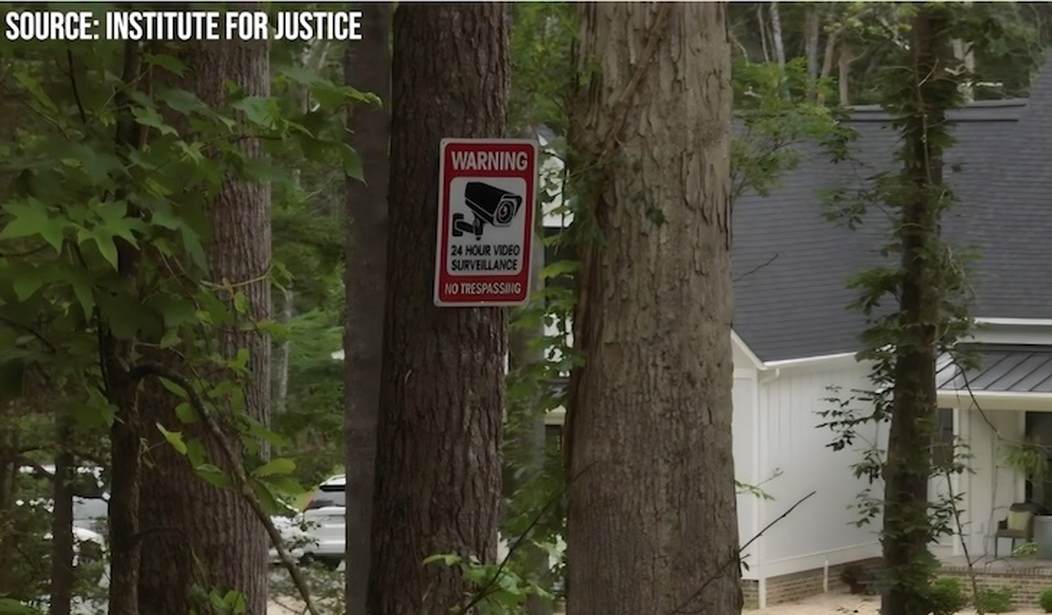A Virginia homeowner has filed a lawsuit against state government agents, alleging they trespassed on his property without a warrant, despite multiple “No Trespassing” signs, and stole his tree-mounted camera.
Josh Highlander told Fox News Digital: “It’s almost like we’ve got a situation with where they think their power’s limitless, and I just don’t feel like that’s right.”
Highlander, who owns nearly 30 wooded acres in New Kent County, Virginia, said his wife and six-year-old son were playing basketball in the driveway on April 8, the first day of turkey hunting season.
When the ball rolled to the edge of the woods and they went to get it, they saw an adult dressed in full camouflage among the trees — prompting Mrs. Highlander and the boy to rush into the house and get Mr. Highlander, he said. “My wife has got, like, this panic in her eyes.”
Highlander first assumed the man was a hunter but later discovered that one of his trail cameras was missing.
When Highlander reported it stolen, the sheriff’s department told him the Virginia Department of Wildlife Resources (DWR) had taken the camera and would reach out to Highlander, said attorney Joseph Gay with the nonprofit Institute for Justice, a public interest law firm.
More than two months later, Highlander said he has not received any information from DWR. A DWR spokesperson declined to answer any questions when contacted by Fox News, citing “pending litigation.”
Highlander said DWR may be searching his cameras for evidence of hunting violations. Earlier on April 8, Highlander’s brother was cited for “hunting over bait” in a different county.
Agents said they found seeds in the field where he was turkey hunting and determined they were bait, but Highlander’s brother is contesting the ticket, lawyers said.
A DWR spokesperson declined to answer any questions when contacted by Fox News, citing “pending litigation.”
Joseph Gay, an attorney with the nonprofit Institute for Justice, a public interest law firm, says there’s a basic principle at stake: “The basic principle here is that if we as ordinary people can’t sneak onto somebody’s land and steal their camera, then government agents shouldn’t be able to do that either.”
Whether or not government agents shouldn’t be able to do so either, the question is, can they legally? Unfortunately, they apparently believe they have the “right” to do just that, based on the increased surveillance activity we’re seeing under the guise of the USA PATRIOT Act. Or do they?
Just six weeks after the September 11 attacks, a panicked Congress passed the “USA/Patriot Act,” an overnight revision of the nation’s surveillance laws that vastly expanded the government’s authority to spy on its own citizens, while simultaneously reducing checks and balances on those powers like judicial oversight, public accountability, and the ability to challenge government searches in court.
Congress and the Administration acted without any careful or systematic effort to determine whether weaknesses in our surveillance laws had contributed to the attacks, or whether the changes they were making would help prevent further attacks. Indeed, many of the act’s provisions have nothing at all to do with terrorism.
Nevertheless, Highlander’s lawsuit, which he filed in early June against the Virginia Department of Wildlife Resources, challenges a nearly 100-year-old Supreme Court ruling that Fourth Amendment protections against warrantless searches and seizures do not apply to “open fields.”
It should also be noted that several states have extended Fourth Amendment protections to privately owned land beyond the area immediately surrounding a home or other dwelling, although Virginia isn’t one of them.
Gay said Highlander’s suit seeks to establish in Virginia the principle that “No Trespassing” signs should apply also apply to government agents, without just cause and/or warrants, and not just to private citizens.
The Institute for Justice is litigating similar cases in other states:
Two Pennsylvania hunting clubs are suing the state after alleging a wildlife agent repeatedly trespassed on their properties to “spy on and harass club members.” A Tennessee man claimed wildlife officials placed a surveillance camera on his property without his knowledge. A Connecticut couple claims the state’s energy department strapped a camera to a bear in order to surveil their 117-acre forested property.
Gay says Highlander’s case is different because rather than placing a surveillance camera on his property, state agents took his privately purchased camera. “We see that as a completely separate violation of the Constitution and one that I think is clearly established as a violation of the Constitution under case law around the country.”
Highland’s suit seeks just $1 in damages from the three conservation police officers accused of trespassing on his property, reimbursement of his “cost and expenses,” an order for the wildlife department to return his camera and destroy any images it recorded, and an injunction that permanently bars wildlife officials from searching his property without a warrant or his consent moving forward.
As I reported on Saturday, in a somewhat related article, a Montana gun shop owner claimed he was targeted by “heavily armed agents” before he opened his store on Wednesday. IRS agents reportedly seized “dozens of boxes” of ATF Form 4473s with required background-check information on gun sales, including the serial numbers of all firearms legally purchased.
The Biden administration was unavailable for comment.
The Bottom Line
While the overreach of emboldened state officials isn’t necessarily related to federal overreach under the Biden administration, it’s awfully — let’s just call it “coincidental.” [winking emoji]














Join the conversation as a VIP Member